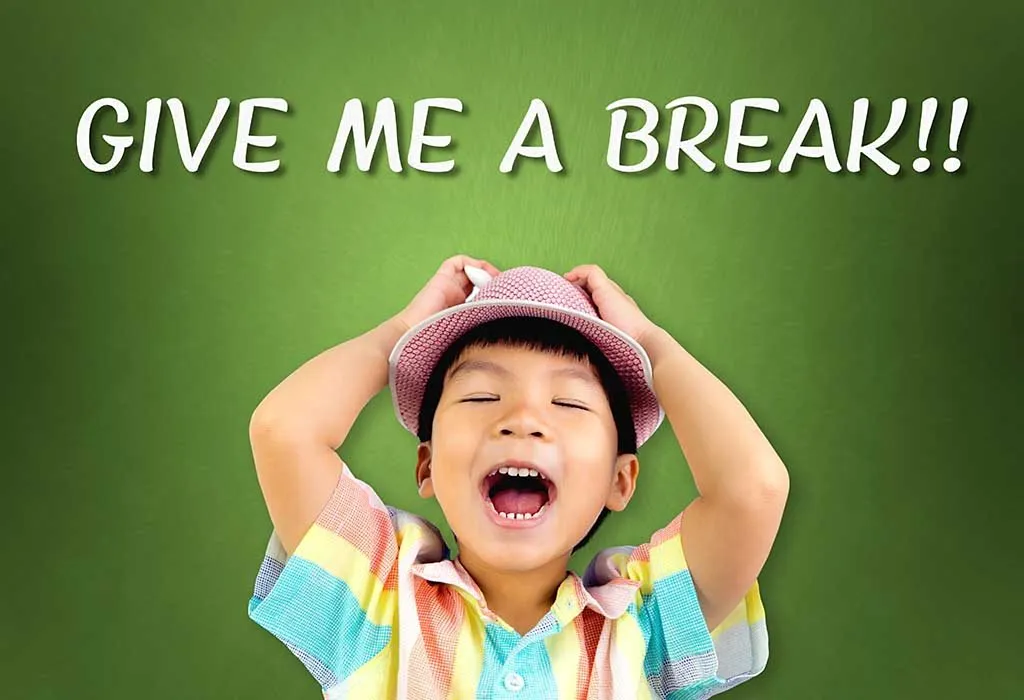Pros and Cons of School Being Year Round

- What Is Year-Round Schooling?
- Pros And Cons of Year-Round Schooling For Children
Year-round schooling has prevailed for a while and many parents prefer this option for their kids. Instead of having long summer breaks, it involves having shorter yet frequent breaks with schooling lasting throughout the year. Many parents don't like the idea of year-round schooling since it involves attending school the whole year but in reality, this system follows the same 180-days traditional calendar. It's just that the breaks are shorter and more frequent. The system of year-round schooling goes back to the time when parents would harvest crops and make sure children stayed home to help them out.
What Is Year-Round Schooling?
Year-round schooling is a system where-
- Kids attend school for six to nine weeks in a row
- Vacations last only two to four weeks long
- The learning process is ongoing and not broken up like traditional education systems
- Teens can take on summer jobs with this flexible schedule
| Year-round School | Regular school |
| School lasts for 6-9 weeks at a time | School lasts for a semester |
| Vacation is 2-4 weeks long | vacation can last for 2 months, especially summer vacation |
| Learning process is ongoing | Learning process has breaks |
| Teens can get part-time jobs due to the flexibility | Kids may not get time to take on part-time jobs |
Pros And Cons of Year-Round Schooling For Children
Every child experiences a loss in learning or retention rates during long summer breaks. Even parents who hire tutors during the summer vacations report that this learning loss occurs in different subject areas and varies according to grade levels. By eliminating the need for long summer breaks, you make your child smarter and more academically productive. This is just one of the many benefits of year-round school and there's a lot more we've covered below.
Pros of Year-Round School
The following are the advantages of year-round school for children and parents.
1. Frequent Breaks
One of the biggest disadvantages faced in traditional schooling systems is learning loss during the summer. By keeping the breaks shorter and more frequent, students prevent this and remember information from their previous grades.
2. No Need For Remediation Classes
The traditional long summer break in regular schooling systems leads to learning loss in students. Kids often forget what they've learned in the previous grades and it could impact their academic learning and performance as they climb up higher. This is why traditional schools have introduced remediation classes. The disadvantage is that it can take anywhere between 2-4 weeks for these classes to last. Time that could be spent honing student's creative skills and other areas of learning.
Year-round schooling takes the need for remediation classes by preventing learning loss throughout the summer. Besides saving time, it makes students more confident and creative.
3. Less Boredom
There's not much boredom experience since the summer vacations aren't long. Traditional schooling systems make students get bored due to long vacations and they have to restudy concepts due to the long gap experienced.
4. Keeps Classroom Sizes Manageable
Overcrowding is a big issue in traditional schooling and year-round schooling takes care of this really well. Students are given three unique different tracks to follow and there are only two different tracks that a student has to choose to attend in the school at a given time through the year. Classroom sizes don't soar this way and are kept manageable. This also provides greater learning opportunities for the students.
5. More Structured And Productive
Year-round schooling adds structure and consistency to a student's learning environment. There are cases where students don't get a stable environment at home for learning and academic performance. This is where year-round schooling helps, since students can rely on going back to natural learning environments in schools often. It also helps boost their academic performance and helps them stay productive instead of procrastinating or being exposed to at-home stressors.
Cons For Year-Round School

Year-round schooling does have its list of benefits but there are a few cons too. Here's what this system costs to parents and families or what you'd call 'the disadvantages of year-round school' that you need to know.
1. Lack of Family Time
One of the disadvantages of year-round schooling is the lack of family time. If you're planning family vacations, you'll find it difficult making schedules due to the lack of longer vacation breaks. Parents who aren't accustomed to this style of schooling often find it hard to adapt to this new schedule. Structuring time for family activities and reunions becomes difficult this way. Quality family time is important for a child's emotional and mental well-being and parents miss out on this with this type of schooling system.
2. No Summer Fun
Traditional long summer vacation gives kids the opportunity to indulge in arts, culture, and other special summer boot camps which are outside the classroom. Year-round schooling takes away these opportunities from them since they simply don't provide enough time for these.
3. More Disruptions For Students
There are some students who find it hard winding up and gearing down for school work constantly. As soon as they're getting focused a break rolls by, and then when they are easing into the breaks school starts again. Students with short-attention spans face difficulty adjusting to this type of schedule.
4. No Year-Round Activities
One of the perks of traditional schooling is year-round summer activities. Year-round schooling takes that away since students don't get the time to organize summer clubs or take part in special events. Students can't take long summer jobs either due to these shorter breaks and more demanding schedules. Local youth employment also limits the number of hours students can work outside school, thus placing further limitations with this schedule.
5. Difficulty in Finding Childcare
Most baby sitters and nannies are employed during summer breaks. Parents of kids find it hard to get extra assistance at home due to this schooling structure and system. Not many nannies are willing to babysit or look after kids with this irregular schedule.
Whether year-round schooling is right or not for your kids will depend on your values and culture as a family. If you don't mind adapting to new schedules and are flexible, it can be a great way to give your kids a well-rounded education. We'd suggest to first visit the schools you'd like and see how it works in-person before making a decision and enrolling your kids in. There's nothing wrong with traditional schooling or year-round schooling – each has its set of perks and cons. Go with what works for you and your kids.
Also Read:
Tips for Choosing the Best School for Your Child
Unexpected Benefits of Homeschooling
Pros and Cons of Getting Education at Boarding School
Pros and Cons of School Being Year Round
Source: https://parenting.firstcry.com/articles/year-round-school-pros-cons-for-kids/
0 Response to "Pros and Cons of School Being Year Round"
Post a Comment